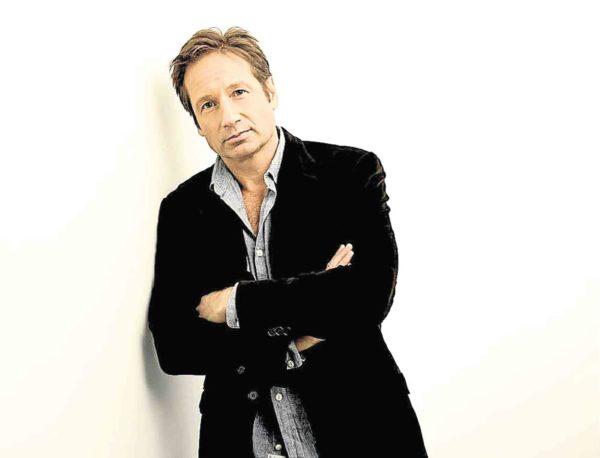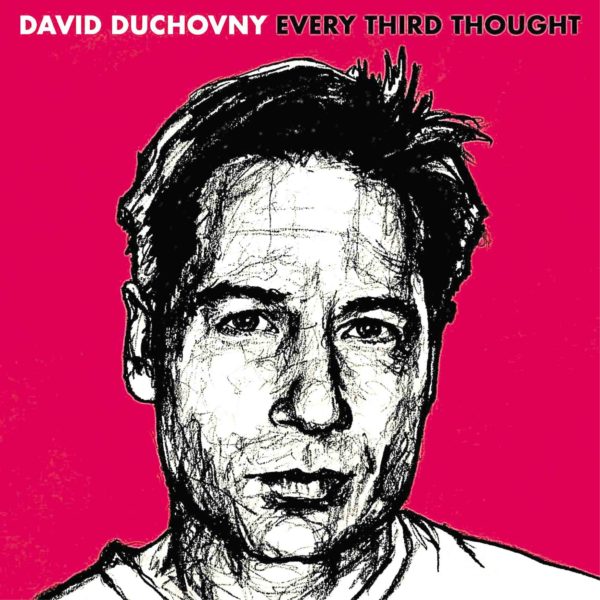David Duchovny, Rose McGowan as musical provocateurs
You need not seek Dana Scully and Fox Mulder’s assistance to figure out if David Duchovny’s second album “Every Third Thought” deserves as much obsequious flattery as his acclaimed new novel, “Miss Subways.” But, if we go by how frequent its 12-song lineup has taken a spin in our multimedia player, it would be safe to say that it’s pretty good.
More than that, the recording is as significant for its lyrical beauty as it is for the irrepressible pop-rock vibe that the new sound of the 57-year-old Princeton and Yale alumnus has gracefully migrated to since he veered away from the Dylan-esque folk-and-country sensibility of 2015’s “Hell or Highwater.”
David’s explanations about the album’s themes and content could come off as too academic for public consumption—after all, how many music lovers out there are familiar with the concept of the Heisenberg Uncertainty Principle or Zeno’s paradox? Get our drift?
Lyrically, however, David’s songs, which are astutely framed by swirling hooks and its uninhibited energy, make a whole lot of sense—like when he talks about divorce in “Half Life” (“How can half of everything feel like less than nothing?”), obsesses over the intricacies of loving in “Every Third Thought” (“Most every thought on what I have lost can’t buy forgiveness if you don’t know the cost”), his counterintuitive musings on success in “Mo’” (“If less is more, what are you unhappy for?”), or coming to terms with his father’s death in “Stranger in the Sacred Heart.”
The exquisite lyrical cogency becomes even more delectable when David brings down the tempo, as he does in the wistful ballad, “Maybe I Can’t”: “If you come back to me again/ I’ll make the blue sky rain/ I’ll make it snow in mid-July/ Make the midnight shine/ I’ll slap the cuffs on the hands of time/ Well, maybe I can’t, but I’ll try”).
David likes the alchemy that takes place when the disparate elements of music-making magically come together. He explains further, “What I like about lyric writing is that you never have to come down specifically on what you mean. And sometimes, the necessity of rhyming is going to push you to places you might not normally go. You’ll change your thought in order to hit that rhyme—and I love having to do that!”
Ball-busting business
While thematically appealing, some of the songs we’ve heard from embattled actress-activist Rose McGowan’s coming album “Planet 9” sometimes lack cohesive focus and lyrical clarity—and it doesn’t help that her renditions are compromised by uneven vocals that are buoyed up by her penchant for thematic provocation.
The lyrical content is grittier than anything you’ll hear in “Every Third Thought,” even if the writing is more ambiguous—like “Sirene,” which plays out like a radio-ready New Wave ditty from the ’80s.
But, it’s hard to ignore how the feminist warrior’s random rapping or abstract rambling gives her digitized in-your-face singing an alluring spin.
Rose’s feminist convictions come shining through in “Lonely House,” which fuses spoken-word poetry with the doom and gloom of its music, as she quickly gets down to ball-busting business: “Who am I?/ I stand for all/ I stand for strength/ For women who can’t, and for men too scared to beat that beast/ And watch him drown!” Carry on, Ms McGowan—we hear you.


